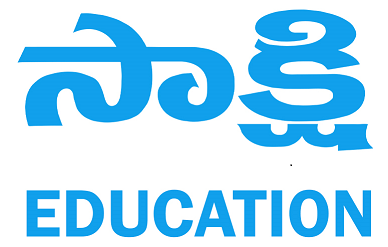4th April, 2024 Current Affairs

NATIONAL
President Droupadi Murmu To Dedicate CAR-T Cell Therapy To Nation At IIT Bombay
- President Droupadi Murmu will visit Mumbai today, where she will dedicate CAR-T Cell Therapy to the nation at IIT Bombay. The CAR-T Cell Therapy (used to treat cancer patients) has been developed in India by IIT Bombay-incubated Company Immunoadoptive Cell Therapy (ImmunoACT).
- The CAR-T Cell Therapy product has been developed as a collaborative effort between IIT Bombay and Tata Memorial Centre (TMC).
- Designed and developed at IIT Bombay, the therapy has undergone integrative process development and manufacturing at ImmunoACT.
- Clinical investigations and translational studies were conducted by teams at TMH. The CAR-T Cell Therapy product is expected to save many lives at much lower cost compared to the cost of such products available outside India.
INTERNATIONAL
Abdel Fattah Al-Sisi Takes Oath As Egypt’s President For 3rd Term
- Egyptian President Abdel Fattah al-Sisi today was sworn in for his third term as President. Sisi had won the Presidential election with 89.6 percent of the vote in December last year. He is set to remain president until 2030.
- Sisi vowed to remain faithful to the interest of the people of the country. As Egypt has battled a deep economic crisis with the help of billions in overseas loans and investments, he pledged to build a modern and democratic state.
Nepal’s Lower House Endorses The BIMSTEC Charter
- The BIMSTEC Charter was presented by Deputy Prime Minister and Minister for Foreign Affairs, Narayan Kaji Shrestha in the lower house of the Federal Parliament of Nepal today. A majority in the lower house supported the proposal seeking endorsement of the BIMSTEC Charter.
- BIMSTEC charter can only be enforced after its endorsement by parliament. Apart from Nepal, other six member countries of BIMSTEC have got the BIMSTEC Charter endorsed by their respective parliaments. BIMSTEC may forge regional collaboration for economic prosperity.
- Article 279 (1) of the Constitution of Nepal provides that the ratification of a treaty and agreement to which Nepal is to become a party shall be as provided for in the federal law. Clause 4 of the Nepal Treaty Act 2027 provides that the Government and Council of Ministers have to table the charter at the Federal Parliament for approval. As per the provision, the government tabled the BIMSTEC charter in the parliament for its approval.
- BIMSTEC was formed in 1997 to enhance regional cooperation on issues like economic prosperity, social progress, scientific achievement, peace, stability and connectivity. Bangladesh, Bhutan, India, Myanmar, Nepal, Sri Lanka and Thailand are members of BIMSTEC. Nepal became a member of BIMSTEC in 2004.
India-Nepal Joint Initiative to Promote Sanskrit Research and Education
- The Indian and Nepalese governments, along with scholars from both countries, have collaborated to advance Sanskrit research and education.
- This partnership aims to strengthen bilateral relations and preserve the cultural heritage shared by India and Nepal.
- Agreement to promote the preservation of Sanskrit, Pali, and Prakrit languages, along with the associated religious, cultural, philosophical, historical, and archaeological heritage of both nations.
Congo Appoints First Female Prime Minister Amid Eastern Violence
- The Democratic Republic of Congo has appointed Judith Suminwa Tuluka as the country’s first female Prime Minister. This move by President Felix Tshisekedi fulfills a campaign promise and comes at a time of worsening violence in the mineral-rich eastern region bordering Rwanda.
- The long-running conflict in the east has displaced more than 7 million people, according to the United Nations, making it one of the world’s worst humanitarian crises. The region is overrun by more than 120 armed groups seeking control over the area’s gold and other resources, leading to mass killings.
- The new Prime Minister, Judith SuminwaTuluka, has promised to work towards peace and development in her first speech. However, forming a new government could take months due to the need for intensive negotiations with various political parties.
UN Appoints Saudi Arabia to Lead Women’s Rights Forum Despite Criticism
- Saudi Arabia has been chosen to chair the UN Commission on the Status of Women (CSW), despite widespread criticism due to its poor record on women’s rights. The appointment of Saudi Ambassador Abdulaziz Alwasil has sparked outrage from human rights groups, given the stark disparity between the kingdom’s actions and the commission’s mandate to promote gender equality.
- Saudi Arabia’s bid for leadership went unopposed during the CSW’s annual meeting, with no dissent from the 45 member states.
- Amnesty International and Human Rights Watch condemn the appointment, emphasizing Saudi Arabia’s ongoing detention of women’s rights activists and failure to address systemic gender inequalities.
Romania and Bulgaria Partially Join Schengen Travel Zone
- Romania and Bulgaria have taken a significant step in their integration with the European Union by partially joining the Schengen travel zone. While travelers arriving by air or sea now enjoy ID-check-free access, land border checks persist due to opposition from Austria.
- Established in 1985, the Schengen Area previously consisted of 23 EU member countries and additional non-EU states.
- Austria vetoed Romania and Bulgaria’s admission into the Schengen zone in 2022, citing concerns over illegal migration.
- Members of the European Parliament voice concerns about potential long queues at EU land borders, affecting trade and driver safety.
>> Download Current Affairs PDFs Here
Download Sakshi Education Mobile APP

ECONOMY
Paradip Port becomes numero uno among Indian Major Ports in cargo throughput in FY 2023-24
- Paradip Port Authority (PPA’s) remarkable journey has reached new heights with the recent record-breaking achievement of clocking incredible 145.38 MMT cargo throughput in FY 2023-24 and thus-by nudged passed Deendayal Port, Kandla to emerge as the highest cargo handling major port of the country. For the first time in the 56 years history of operation, PPA has surpassed previous records, set by Deendayal Port. Paradip Port has also recorded growth of 10.02 million metric tonnes (7.4%) of traffic on YoY basis.
- During the financial year the Port has achieved highest ever coastal shipping traffic of 59.19 million metric tonnes, with a growth of 0.76 million metric tonnes i.e. 1.30% over the previous year. The thermal coal coastal shipping has reached 43.97 million metric tonnes i.e. 4.02% over the previous year cargo handling. Thus, the Paradip Port is emerging as a hub for coastal shipping in the country.
- Paradip Port has been able to improve its berth productivity to 33014 MT from 31050 MT of previous financial year, thus registering 6.33% growth. The berth productivity achieved by Paradip Port is the highest among all the ports of the country. During the financial year, the Port has handled 21,665 numbers of rakes, registering a growth of 7.65% over the previous financial year. During the financial year, the Port has handled 2710 ships, registering an increase of 13.82% over the previous financial year.
World Bank Raises India’s Growth Projection: FY24 GDP at 7.5%
- The World Bank has revised India’s GDP growth projection for FY25 to 6.6%, indicating a moderate yet steady growth trajectory. Despite the anticipated slowdown, robust economic activity in India is expected to drive growth in South Asia, outpacing other emerging market and developing economies.
- FY25 growth projection raised to 6.6% by the World Bank, reflecting a slight increase of 20 basis points.
- FY24 GDP estimated at 7.5%, showcasing a resilient economic performance.
- This analysis, outlined in the World Bank’s South Asia Development Update for April 2024, underscores India’s resilience amidst global economic fluctuations and highlights the potential for sustained growth in the region.
SCIENCE AND TECHNOLOGY
Kodaikanal Solar Observatory celebrates 125 years of studying the Sun
- The 125th anniversary of the iconic Kodaikanal Solar Observatory (KSO) was celebrated on 1 April 2024 by Indian Institute of Astrophysics (IIA), an autonomous institute of the Department of Science and Technology (DST), to remember the history of KSO, felicitate its scientists, and honour its legacy was a milestone for astronomy in India. The KSO houses a digital repository of 1.2 lakh digitised solar images and thousands of other images of the Sun recorded every day since the start of the 20th century.
- Established on 1 April 1899 by the British, the Observatory has one of the longest continuous daily records of the Sun in the world, and this unique database has been digitised and is publicly available for astronomers from across the globe.
SJVN Partners with IIT Patna to Enhance Tunneling Project Performance.
- SJVN, formerly Satluj Jal Vidyut Nigam, has forged a strategic partnership with the Indian Institute of Technology Patna (IIT Patna) aimed at revolutionizing tunneling project performance through the integration of advanced geological models.
- The primary objective of the MoU is to leverage advanced geological models developed by IIT Patna to enhance the efficiency and effectiveness of SJVN’s tunneling projects.
- Harnessing integrated geotechnical data and 3D geological models, the collaboration aims to identify and analyze potential risks and hazards associated with tunneling projects, enabling proactive risk management strategies.
Korean Fusion Reactor ‘Artificial Sun’ Sets New Record
- Scientists in South Korea have set a new world record using the Korea Superconducting Tokamak Advanced Research (KSTAR) device, an “artificial sun” nuclear fusion reactor. During tests conducted between December 2023 and February 2024, they generated plasma temperatures of 100 million degrees Celsius for a duration of 48 seconds.
- The achieved temperature of 100 million degrees Celsius is a remarkable seven times hotter than the Sun’s core, which has a temperature of approximately 15 million degrees Celsius.
- The most common approach to achieving fusion energy involves the use of a doughnut-shaped reactor called a tokamak, in which hydrogen variants are heated to extreme temperatures to create plasma. Maintaining high-temperature and high-density plasmas for extended durations is crucial for the success of nuclear fusion reactors.
Tags
- Daily Current Affairs
- General Knowledge
- GK General Knowledge 2024
- India Current Affairs
- Today English News on GK
- April 2024 Current Affairs
- April 4th Current Affairs
- Current Affairs in English
- national gk for competitive exams
- international gk
- World news Current Affairs
- did you know
- sakshieducation current affairs




















